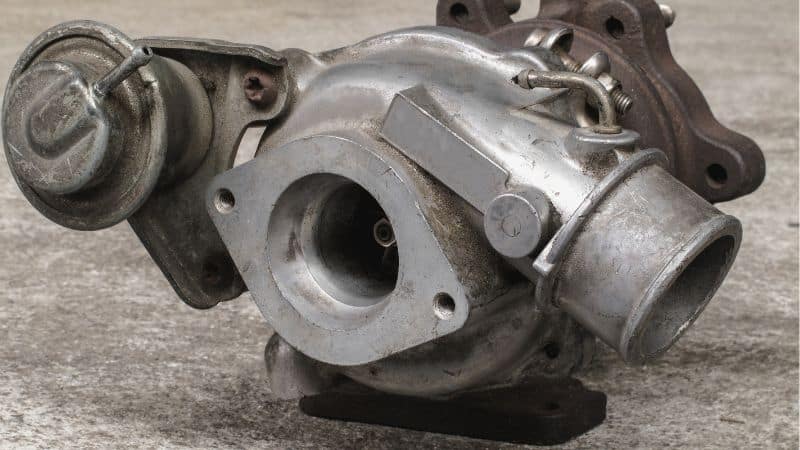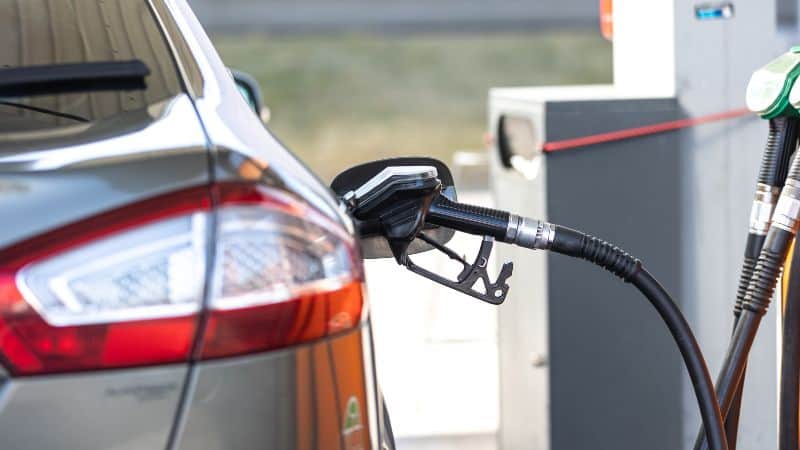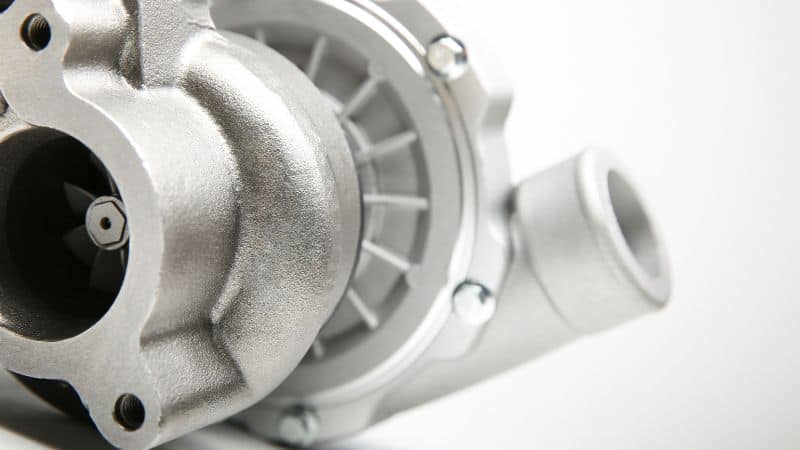Do turbochargers increase fuel economy? Actually, if you want to increase the performance of a car engine, a great way is to boost it literally. Turbochargers force more air into an engine than it could otherwise get. In theory, turbochargers can increase an internal combustion engine’s performance by 10-30%.
In reality, things are somewhat more complicated. Many car manufacturers do not design their turbochargers solely for fuel economy. Nowadays, turbocharged automobiles will give you a proven performance that is more fuel-efficient. However, in detailed description you can know about this topic properly.

How a Turbocharger Works?
A turbocharger (also known as a “turbo”) has two main parts: a turbine and a compressor. By using the engine’s exhaust gasses as energy, this forced induction system spins the turbine. And it’s causing the compressor to feed the engine with more air. In general, turbos are more fuel-efficient than superchargers because of their clever recycling of waste energy.
However, power delivery is more instantaneous than in a turbocharged system. Known as “turbo lag,” turbos “spool up” or slightly delay power delivery when reaching full speed. This may lead to a slower acceleration response. Depending on your engine, you can expect 70-150 extra if you want to know how much HP a turbo adds. Regarding fuel economy, turbos work roughly as well as naturally aspirated engines, sometimes slightly better, sometimes worse.
Do Turbochargers Increase Fuel Economy?
Yes, it does. But, actually, it depends on the type of your car. Generally, if performance isn’t your priority, turbocharged engines work to increase your fuel economy. Only some kinds of turbo will similarly improve your car’s fuel economy. If you add a turbo, your small engine can increase fuel economy and performance. Many vehicles use a single turbocharger. But more luxurious and elite vehicles will use twin turbos for extra fuel economy and performance.
Installing a twin-turbo can increase airflow and force in the combustion chamber, significantly improving fuel economy. Brands like Borgwarner, Garret, and IHI have some of the best turbochargers. You can rely on their turbos to produce the best fuel economy for your vehicle. Fuel economy impacts many areas of performance, functionality, and cost.
For your driving experience, ensure your car has an excellent fuel economy. That’s why a turbocharger is one of the most effective ways to increase fuel economy. Installing a turbocharger will produce excellent results and increase your car engine’s ability to use fuel. Consider looking for a turbocharger for your car, wallet, and the environment.
Do Turbochargers Increase Fuel Economy Diesel?
Yes. High-energy density fuels like diesel have a high ratio of carbon to hydrogen. Low-energy-density fossil fuel hydrocarbons, such as natural gas have a carbon-to-hydrogen atom ratio of 1:4 or 1:5. High energy-dense fuels like diesel have ratios closer to 1-to-2. High carbon to hydrogen ratio fuels, however, have a high energy density and are very stable.
Fuel stability is an excellent quality in terms of safety and pre-combustion emissions. Also, fuels with higher energy density evaporate much less and more slowly than those with lower energy density. Besides this, fuel stability is also a factor in burning fossil fuels with higher energy density. Even it Incompletely produces abundant and widespread emissions.
Fossil fuels with a higher energy content are not dirtier than other fossil fuels. It means we must still develop an engine or furnace capable of producing complete combustion. And that’s where a turbocharger comes in. A turbo increases the efficiency of a diesel that burns highly stable and energy-rich fuel. As engines burn diesel to increase combustion efficiency, a turbocharger increases power. Diesel produces and reduces emissions by converting more diesel fuel into carbon dioxide.
Turbo Vs. Non-Turbo Fuel Consumption:
With a turbocharger, you can get significant power from an engine. As the engine revs, it produces more exhaust gasses. These gasses cause the exhaust fan to spin, which then causes the intake fan to turn. Consequently, more air is drawn in and forced into the cylinders, increasing power. Nonetheless, turbocharging is not perfect because it draws more air into the engine, requiring more fuel to increase power. So, a turbocharged engine will consume more fuel than a naturally aspirated equal-size engine.
Also, turbocharging heats the air, which makes it less dense, decreasing the combustion process efficiency. Modern electrics, however, have made up for this to a large extent. The real benefit of turbocharging is that it makes smaller engines usable in regular family hatchbacks. These can be scaled up to produce the same energy as larger engines. But being smaller, they use less fuel than larger motors. Moreover, they are much lighter than larger engines, which helps fuel economy.
Turbocharger Vs Supercharger: Which Is Faster?
Turbocharger vs supercharger: which is faster? Basically, Crankshaft power is required for a supercharger to function. An exhaust heat source powers a turbocharger. A turbo will always produce more power at a boost level. A supercharger has fairly instantaneous energy. Some are efficient. In contrast, turbocharged engines are efficient and better on fuel.
Two compression stages and one expansion stage are additional supercharged engine features. A turbocharged engine has two stages; adding an expansion stage increases its efficiency. Moreover, the turbo will make more horsepower. On the other hand, superchargers win in a drag race because of the near-instant power they offer. Fuel economy will go turbo.
The main problem with a supercharger is that it stops power to drive while the turbo easily does. Older two-stroke diesel blowers were used because they needed to run. The last of them used a turbo in an attempt to be competitive with four-stroke diesels. Turbochargers are mainly on the win list because of their fuel economy. On the contrary, you may choose a supercharger for drag racing because of instant power.
Do Superchargers Increase Fuel Economy?
A supercharger is mechanically driven and connected directly to the engine via a belt attached to the crankshaft. Or, in some cases, it’s driven by an electric motor. This direct connection translates into instant power delivery with no perceptible lag. Giving you instant feedback as soon as you hit the gas pedal.
Nevertheless, this instant power comes with a trade-off. Superchargers draw power from the engine to operate, which can reduce fuel efficiency, especially at high revs. To produce more power, they use more fuel. Notably, this makes them a less fuel-efficient choice. Depending on the supercharger, especially on certain cars, you can expect anywhere from 30-75% extra horsepower. Fuel efficiency relies on your driving style and car type.

How To Increase Fuel Efficiency?
Fuel efficiency is how well your vehicle can convert fuel, like gas, into energy. Hence, fuel efficiency is how well your car can convert fuel, i.e., gas, into power. Increasing your car’s fuel efficiency is crucial now more than ever as gas prices rise. Learning how to improve fuel efficiency can help keep your vehicle running smoothly. Have a look:
- Try to Accelerate gently
- Keep your speed consistent
- Remove excess weight from your vehicle
- Make sure you have the correct tire pressure
- When driving, be prepared for everything.
- Smoothly accelerate and desperate
- To keep your speed constant, use cruise control.
- Ensure that you are always under proper control.
- Perform regular maintenance
- Avoid unnecessary idling
- Don’t use excessive air conditioning
- Don’t coast – leave your vehicle in gear when slowing down
- Decrease drag by removing roof boxes and keeping the windows up
- Make a route plan.
- Think about a hybrid car.
Will Adding Turbos Improve Or Degrade Fuel Economy?
Modern turbocharging is designed to improve fuel economy. Pressurizing the smaller engine’s intake is to boost volumetric efficiency. It also enables smaller engines to generate the same power and torque as their larger counterparts. Pushing a more significant fuel mixture to increase power will decrease the fuel economy of a smaller engine. But the savings come from having a car that weighs less by swapping out a larger engine for a smaller one. Consequently, it will reduce the fuel needed to propel the vehicle.
The drop in fuel economy when you accelerate will far outweigh the gain from highway cruising. Now, adding a turbo to a non-turbo car is not easy. You will need a turbo, a new intake, a new turbo elbow, and a new downpipe to run low boost and see some extra horsepower. To get the most out of a turbo, you need to rebuild the engine’s bottom end completely.
FAQ ( Frequently Asked Questions):
Q. Does turbo reduce fuel consumption?
Since a turbo system forces pressurized air into the engine, the engine will burn much more fuel. Mainly, this is useful in low-displacement engines. The reason is that this type of engine is typically unable to generate low horsepower. For example, a turbocharged engine may provide a fantastic engine performance benefit. On the contrary, a lower displacement engine offers fuel economy where the turbocharger is not spooled.
Q. Which is more fuel-efficient, turbo or non turbo?
Turbochargers give your car extra power without increasing engine size. Furthermore, they are generally more fuel-efficient than non-turbo engines. To put it another way, a turbocharger efficiently recovers lost exhaust energy and uses it again for combustion. Because of this, turbo engines use less fuel to produce comparable power.
Q. Are turbos more fuel-efficient than superchargers?
To generate extra power, the turbocharger uses exhaust gas flow that will be wasted elsewhere. According to research, turbochargers are 20% to 25% more fuel-efficient than superchargers. So, from an efficiency point of view, a turbocharger is a much more economical deal.
Q. Do turbos reduce engine life?
In reality, it depends on how you run them and set them up. For example, at 5,280 feet in Denver, a boosted engine car will wear the same as an unbooted engine. Therefore, the turbocharger is only compensating for altitude-related performance losses.
Final Word
Finally, do turbochargers increase fuel economy? Basically, nowadays, you can’t denies the importance of turbo technology in the automotive world and beyond. Turbochargers play a significant role in V Band and water-cooled variants. Similarly, it truly revolutionized many vehicles’ power, performance, and efficiency.
As technology evolves, turbochargers continually refine their capabilities to reduce fuel consumption and emissions. Whether you’re a performance car enthusiast or someone who values fuel efficiency, you can’t deny the importance of turbocharger technology. Subsequently, it’s time to be involved in the turbochargers to increase the fuel efficiency of your vehicle. Thank you.


